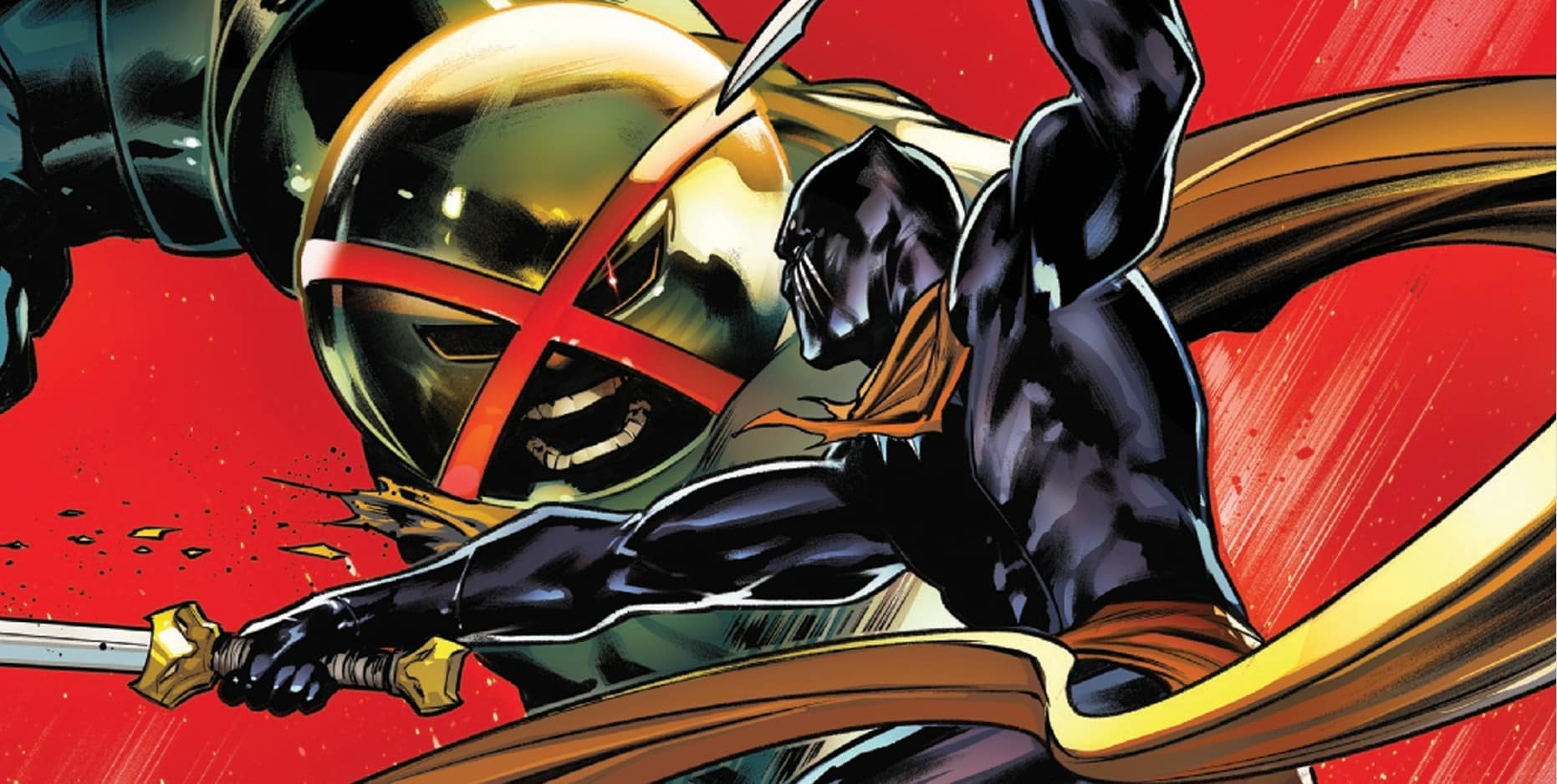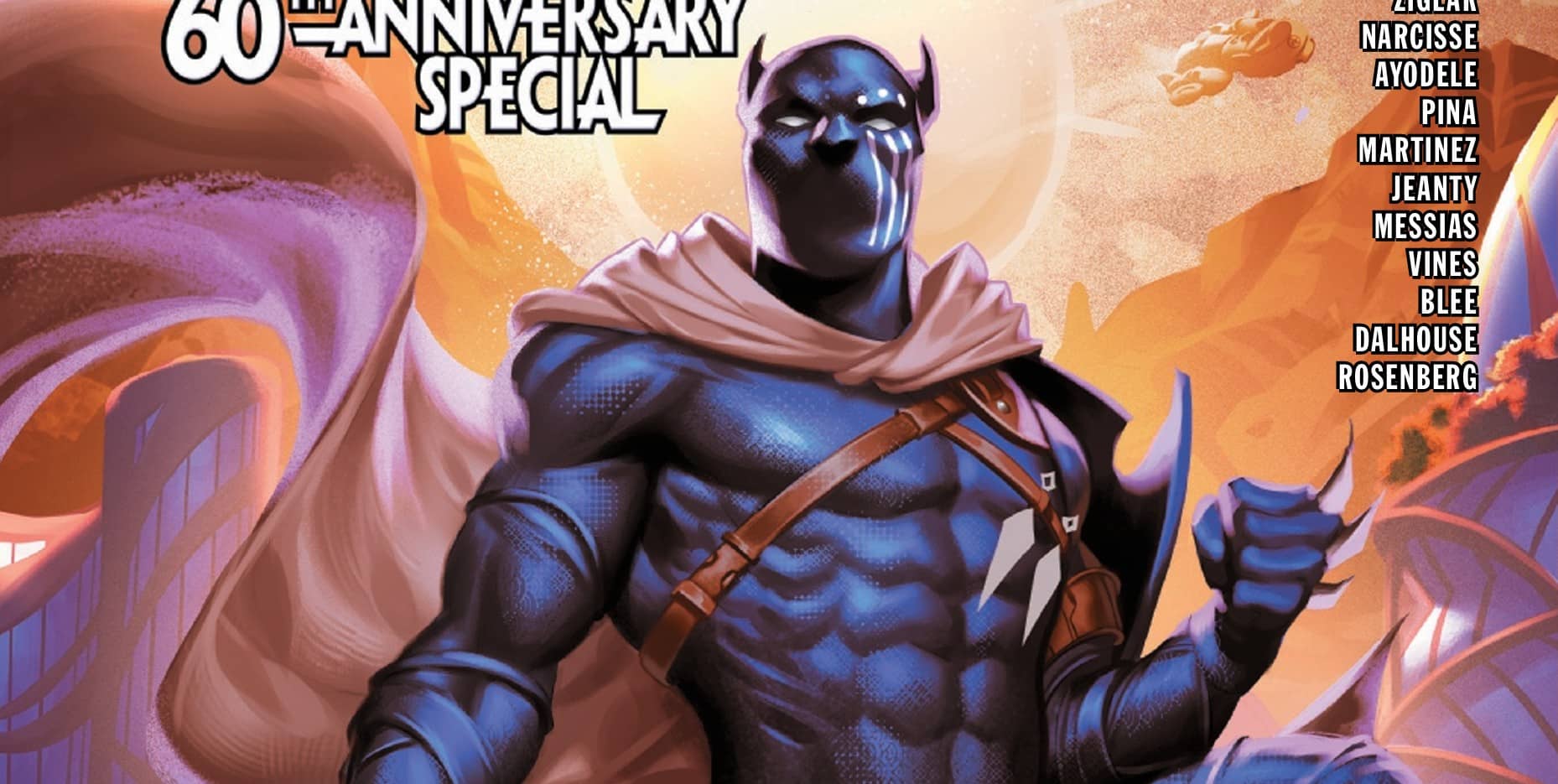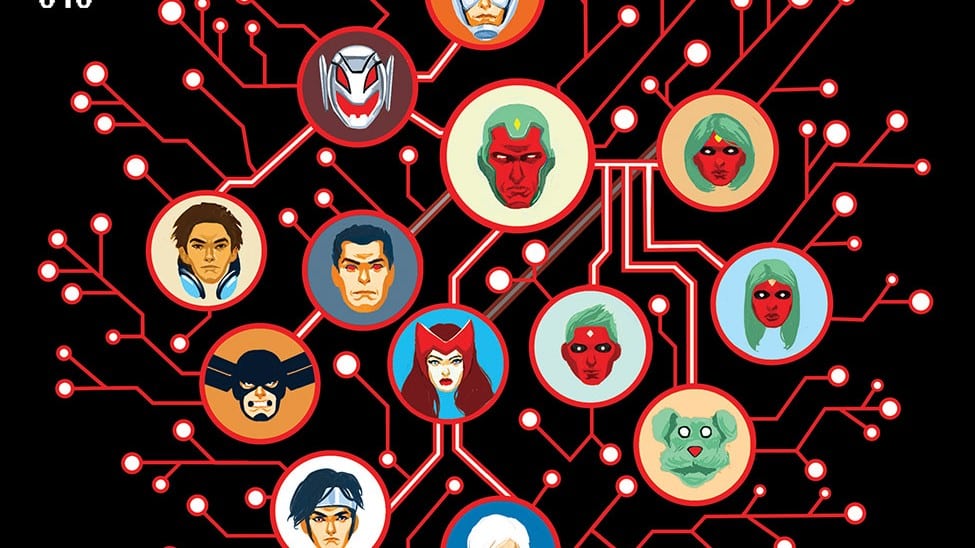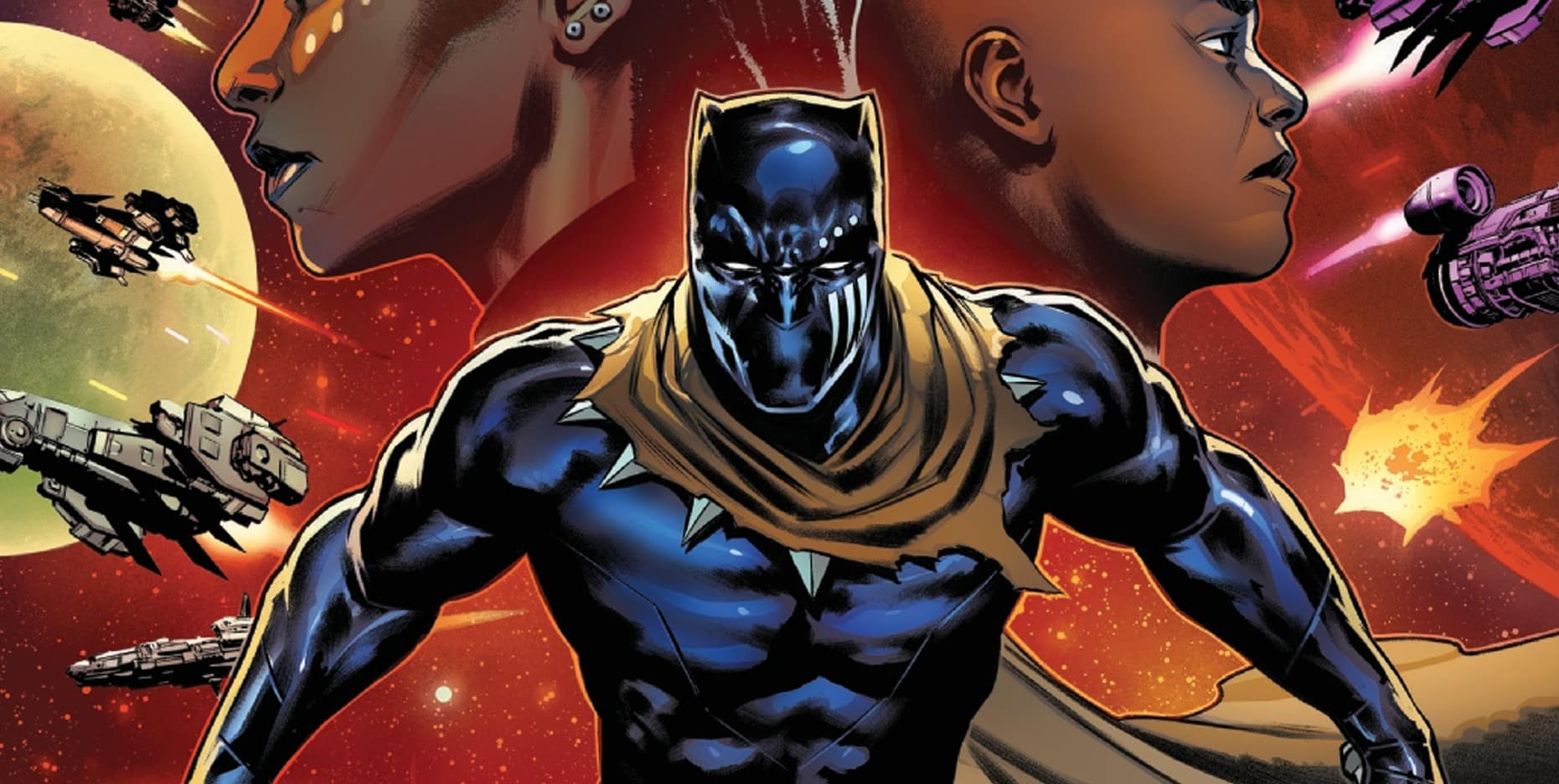T’Challa’s final attempt to free the galaxy from tyranny in Black Panther #23 written by Ta-Nehisi Coates,art by Daniel Acuña and Ryan Bodenheim, colors by Daniel Acuña and Chris O’Halloran, and lettering by Joe Sabino.
It’s been months since Black Panther went on hiatus. I’m not entirely sure why. In any case, issue #23 marks the third-to-last of Coates’s years-long residency, and quite a lot has happened over the second arc of his run.
Oh, you want me to fill you in?
Breathes in…
On an intergalactic mission to find lost Wakandan scientists, T’Challa ends up across the galaxy in time distilled empire founded 2000 years ago by those very scientists. Wakandan values have morphed the righteous kingdom into a slave-producing empire that takes the memories of the enslaved to make them better servants. T’Challa, initially deprived of his memories and enslaved, is empowered by the revived memory of home (and of Love) and works with a group of rebels, named after Wakandans of times past to free the persecuted. These rebels, at high cost, begin to overthrow the empire, eventually finding their way to our Earth, in the present. But the King of that empire, N’Jadaka, thought killed in a climactic battle, infused himself into the body of Killmonger using a symbiote (but no Knull!), and that body with two minds is now on the way to Earth, awaiting the final showdown.
Also, there are gods, mind wiping, and, uh, demons too. Whew.
Exhales.
It’s a lot.
Black Panther #23 sets up the final battle, with a view of all the chess moves being put into place: N’Jadaka, struggling, but resolute; T’Challa, inspirational and confident; heroic (and melanated) friends assembled; gods reprimanded, reimaged and released.
This is a really rough place to pick up this comic if you haven’t read it before. The plot is centered around tying up loose ends and setting up final fights. As such, you will be incredibly lost if you haven’t been keeping up (or if you don’t remember what happened months ago). In traditional Coates’ fashion, this is dialogue heavy and action light, so action aficionados need not apply.
That said, this is a competent, rich world, composed of emoting characters with varying, but relatable, motivations. It is complex, but not simply for complexity’s sake.
There are themes introduced here I absolutely adore exploring: to what degree is the good of a culture is nature (Wakandans are naturally good folk) or nurture (Wakandans have to work at being good constantly, vigilantly); the right of the wronged to reparations; the nature of the intercession of the gods (in this case, the Orisha). The prose is clear, and the allusions are a bit on the nose, but still appreciated.
The artistic duties are shared by Daniel Acuña and Ryan Bodenheim. The results are wildly uneven. I can tell when Daniel is at the helm, and his work – colors, shading, textures, expressions – is magnificent. Unfortunately, the art suffers in places where his tell-tale hand is not at the helm. It’s not bad, but the change in quality is jarring and (honestly) frustrating. Colors don’t look consistent, and the art style just does not jibe with the rest of the issue.
All said, I enjoy that this world exists. I enjoy reading this comic.
But I’m still left wanting.
For this entire run, I’ve had a lament, a nagging frustration that I’m compelled to articulate my out of honesty to the reader and to myself:
I’m just not that into it.
I get what I’m supposed to get, and I appreciate (in innumerable ways) that it exists. But do I feel excited by what’s actually happening? Enthralled in anticipation like I was for say, “X of Swords”? Does this hold my attention past the time I put it down?
No, not really.
I watch Atlanta. It’s a good show, written by a funny man. And sometimes I laugh. But mostly I watch to experience it. I appreciate it for trying to be more. It doesn’t always succeed, but it always tries, balls out.
Much like Atlanta is more than a simple comedy, this is more than a simple comic. And yet, where Atlanta goes for the audacious and avant-garde, BP feels like a slog. Not bad, but too meditative for this medium.
I’m sure it will read better as a collected set. I just wish it was more captivating in individual issues. It would make the stories that much more riveting and make the allusions that much more relevant.
There are two issues left. #24 teases a fight by what can only be described as the Black Avengers. Is this fan service? Probably! Is this earned? Probably not! Do I care? Absolutely, categorically not.
Bring it on.
_____________
In conjunction with the launch of the final three issues of BP, Marvel is teaming up with Def Jam Records (historic home of the Beastie Boys, LL, and DMX, current home to Big Sean, Hit-Boy, and 2 Chainz) to release comic shorts penned by up-and-coming Def Jam artists.
Saint Bodhi (with scripting help from Danny Lore) tells the story of a young mutant, besieged by violence, reacting with violence, but calmed by a woman who knows from experience that violence will not heal her pain.
This was a good read – a read that would be at home in the recently released Marvel Voices compilation. A read that, I argue, is better than most of the works in the compilation. The story used it’s space wisely to tell a dense, yet familiar story. I’m (still) not convinced that Krakoa is the answer, but that this work made me reconsider my question speaks volumes.
If the whole music thing doesn’t work out, she certainly has a career path open to her. I hope more auteurs of color take note: your skills can be utilized in a multitude of ways. Explore them all.
Even comics.
Especially comics.
A proud New Orleanian living in the District of Columbia, Jude Jones is a professional thinker, amateur photographer, burgeoning runner and lover of Black culture, love and life. Magneto and Cyclops (and Killmonger) were right. Learn more about Jude at SaintJudeJones.com.






